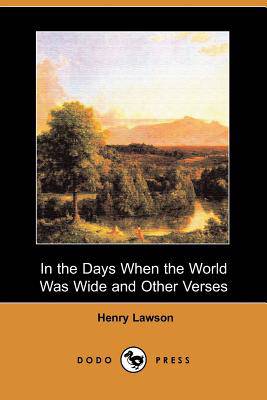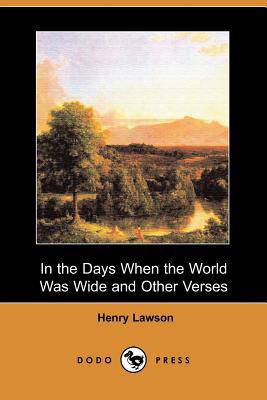
- Afhalen na 1 uur in een winkel met voorraad
- Gratis thuislevering in België vanaf € 30
- Ruim aanbod met 7 miljoen producten
- Afhalen na 1 uur in een winkel met voorraad
- Gratis thuislevering in België vanaf € 30
- Ruim aanbod met 7 miljoen producten
Zoeken
€ 11,45
+ 22 punten
Omschrijving
Henry Lawson (1867-1922) was an Australian writer and poet. Along with his contemporary Banjo Paterson, Lawson is among the best-known Australian poets and fiction writers of the colonial period. Most of his work focuses on the Australian bush. Lawson was a firm believer in the merits of the sketch story, commonly known simply as 'the sketch, ' claiming that "the sketch story is best of all." Like the majority of Australians, Lawson lived in a city, but had had plenty of experience in outback life, in fact, many of his stories reflected his experiences in real life. In Sydney in 1898 he was a prominent member of the Dawn and Dusk Club, a bohemian club of writer friends who met for drinks and conversation. Among his famous works are: In the Days When the World Was Wide (1896), While the Billy Boils (1896), Over the Sliprails (1900), On the Track (1900), Joe Wilson and His Mates (1901), Children of the Bush (1902), and The Rising of the Court (1910).
Specificaties
Betrokkenen
- Auteur(s):
- Uitgeverij:
Inhoud
- Aantal bladzijden:
- 128
- Taal:
- Engels
Eigenschappen
- Productcode (EAN):
- 9781406536126
- Verschijningsdatum:
- 22/06/2007
- Uitvoering:
- Paperback
- Formaat:
- Trade paperback (VS)
- Afmetingen:
- 152 mm x 229 mm
- Gewicht:
- 199 g

Alleen bij Standaard Boekhandel
+ 22 punten op je klantenkaart van Standaard Boekhandel
Beoordelingen
We publiceren alleen reviews die voldoen aan de voorwaarden voor reviews. Bekijk onze voorwaarden voor reviews.











